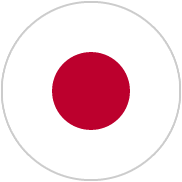Score
Nomura Asset Management
 Japan|15-20 years|
Japan|15-20 years| https://global.nomura-am.co.jp/
Website
Rating Index
Influence
Influence
A
Influence index NO.1
 Japan 8.79
Japan 8.79Contact
 Licenses
Licenses
Licensed Entity:野村アセットマネジメント株式会社
License No. 関東財務局長(金商)第373号
Single Core
1G
40G
1M*ADSL
- The current information shows that this broker does not have a trading software. Please be aware!
Basic Information
 Japan
JapanUsers who viewed Nomura Asset Management also viewed..
XM
- 10-15 years |
- Regulated in Australia |
- Market Maker (MM) |
- MT4 Full License
Taurex
- 5-10 years |
- Regulated in United Kingdom |
- Market Maker (MM) |
- MT4 Full License
AvaTrade
- 15-20 years |
- Regulated in Australia |
- Market Maker (MM) |
- MT4 Full License
CPT Markets
- 10-15 years |
- Regulated in United Kingdom |
- Market Maker (MM) |
- MT4 Full License
Sources
Language
Mkt. Analysis
Creatives
Genealogy
 VIP is not activated.
VIP is not activated.Relevant Enterprises
Company Summary
| Nomura Asset ManagementReview Summary | |
| Founded | 1997-10-30 |
| Registered Country/Region | Japan |
| Regulation | Regulated |
| Business Sectors | Investment Trust Management Business/Institutional Investment Management Business |
| Customer Support | / |
Nomura Asset Management Information
Nomura Asset Management is a wholly owned subsidiary of Nomura Holdings, lnc. and is the core brand within the group's investment management division specializing in investment trust management business and institutional investment management business. As of December 31, 2023, it is the largest investment trust manager in Japan.

Is Nomura Asset Management Legit?
Nomura Asset Management is regulated by the Financial Services Agency(FSA) under license No.関東財務局長(金商)第373号 and License Type Retail Forex License, making it safer than unregulated.


What investment strategies does Nomura Asset Management offer?
Fixed Income: covers a broad range of fixed income-related investment strategies including sovereign bonds, high-yield corporate bonds, emerging market bonds, inflation-linked bonds, and unconstrained fixed income strategies.
Alternatives: manages a range of alternative absolute return investments including a long/short market neutral strategy and a short extended 130/30 strategy targeting Japanese equities.
Multi-Asset: Long multi-asset strategies use active judgment to measure market beta and include assets such as fixed income, equities, REITs, commodities, gold, and high-yield bonds.
Smart Beta: includes RAFI® Fundamental Index, Minimum Volatility, and our proprietary Investment and Profitability (Quality Focus) strategy.
Keywords
- 15-20 years
- Regulated in Japan
- Retail Forex License
- Medium potential risk



Content you want to comment
Please enter...
Comment 1


 TOP
TOP 

Chrome
Chrome extension
Global Forex Broker Regulatory Inquiry
Browse the forex broker websites and identify the legit and fraud brokers accurately

Install Now








